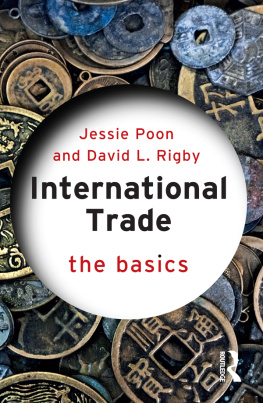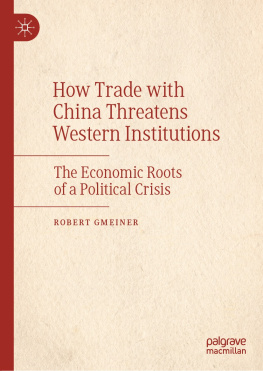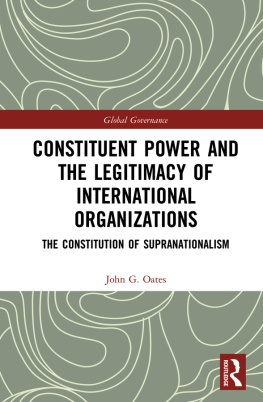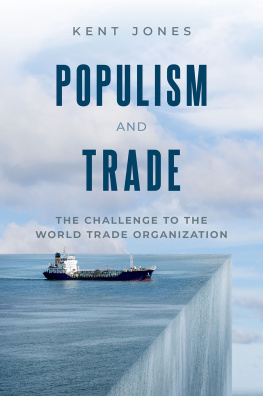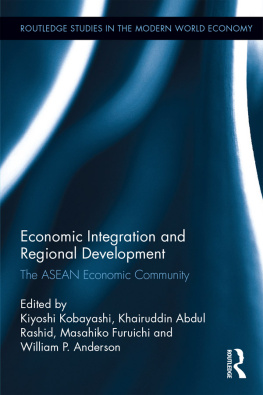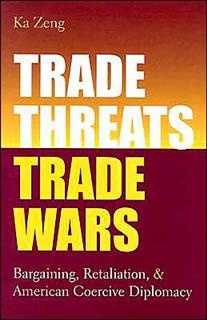The Constitutionalization of
the World Trade Organization:
Legitimacy, Democracy, and
Community in the International
Trading System
Deborah Z. Cass
(p.iv)

- Great Clarendon Street, Oxford OX2 6DP
- Oxford University Press is a department of the University of Oxford.
- It furthers the Universitys objective of excellence in research, scholarship,
- and education by publishing worldwide in
- Auckland Cape Town Dar es Salaam Hong Kong Karachi
- Kuala Lumpur Madrid Melbourne Mexico City Nairobi
- New Delhi Shanghai Taipei Toronto
- Argentina Austria Brazil Chile Czech Republic France Greece
- Guatemala Hungary Italy Japan Poland Portugal Singapore
- South Korea Switzerland Thailand Turkey Ukraine Vietnam
- Oxford is a registered trade mark of Oxford University Press
- in the UK and in certain other countries
- Published in the United States
- by Oxford University Press Inc., New York
- The moral rights of the author have been asserted
- Crown copyright material is reproduced under Class Licence
- Number C01P0000148 with the permission of HMSO
- and the Queens Printer for Scotland
- Database right Oxford University Press (maker)
- All rights reserved. No part of this publication may be reproduced,
- stored in a retrieval system, or transmitted, in any form or by any means,
- without the prior permission in writing of Oxford University Press,
- or as expressly permitted by law, or under terms agreed with the appropriate
- reprographics rights organization. Enquiries concerning reproduction
- outside the scope of the above should be sent to the Rights Department,
- Oxford University Press, at the address above
- You must not circulate this book in any other binding or cover
- and you must impose the same condition on any acquirer
- British Library Cataloguing in Publication Data
- Library of Congress Cataloging-in-Publication Data
- The constitutionalization of the World Trade Organization : legitimacy,
- democracy, and community in the international trading system / Deborah Z. Cass.
- ISBN 0199284636 (alk. paper) ISBN 0199285845 (alk. paper)
- World Trade Organization. 2. Foreign trade regulation. 3. Commerce. I. Title.
- K4610.C37 2005
- 382. 92dc22
- Typeset by Newgen Imaging Systems (P) Ltd., Chennai, India
- Printed in Great Britain
- on acid-free paper by
- Biddies Ltd., Kings Lynn
- ISBN 0199284636
- ISBN 0199285845 (Pbk.)
Dedication
(p.v) To Eva and Ephraim, and Ben and Esther,
who came such a long way,
and to Hannah and Rosa, who are just starting out (p.vi)
(p.vii) General Editors Preface
The Oxford University Press International Economic Law Series is designed to present works that deeply probe problems regarding the globalized and interdependent world in which we now live. As the series General Editor, I am honoured to present another distinguished work which develops material relevant to this subject. This latest volume in the International Economic Law Series, is a book about the constitutionalization of the WTO, authored by Dr Deborah Cass.
This extraordinary book probes the frontier of international economic law. The word constitutionalization is a controversial word, when used in international relations, and indeed, the use of it in the context of institutions such as the WTO, has been criticized by diplomats and others who have a strong inclination to resist changes which involve departure from older ideas of sovereignty. Thus, to use the nomenclature constitution for a treaty-based institutional structure is threatening.
Dr Cass has done just this in an extraordinarily focused and well-developed analysis of constitutional principles in connection with the WTO. The book is very stimulating and is clearly designed to force readers to think about a major international economic institution in a manner that is substantially different from many of the traditional approaches. It is thus an excellent contribution to the general literature of international economic law, and also specifically to thinking about the WTO, which has, itself, been the subject of considerable recent attention regarding its institutional structure.
It is my pleasure to introduce this book, which will certainly enhance public and expert understanding of a number of complex topics concerning the globalized world in which we live.
JOHN H. JACKSON
Notes:
() Peter Sutherland et al, The Future of the WTO: Addressing Institutional Challenges in the New Millennium, Report by the Consultative Board to the Director-General Supachai Panitchpakdi, available at last visited 9 February 2005.
() University Professor of Law, Georgetown University Law Center (GULC), Washington, D.C.;Director, Institute of International Economic Law, GULC; General Editor, International Economic Law Series, Oxford University Press; Editor in Chief, Journal of International Economic Law, Oxford University Press.
(p.ix) Preface
In December 2004, with war ongoing in Iraq, and the elections just over in Afghanistan following a lengthy conflict, the World Trade Organization opened accession talks with both countries. In the same year, the British Chancellor of the1 Exchequer, Gordon Brown, envisioned a new Marshall Plan for the developing world, including increased aid targeting health, education, and infant mortality; continuing trade rule reform; and debt forgiveness. No less controversially, he called for increased trade and a globalization that also means both security and justice on a global scale. As the tenth anniversary year of the WTO approached, it seemed that policy-makers around the world had become convinced that, in a post 9/11 environment, international peace and security issues would only be tackled effectively if international trade, poverty reduction, health, and development could also be addressed.
The policies proposed were, of course, contentious. In 2001, Brazil had manufactured and supplied AIDS drugs free to people living with HIV, and India had threatened to sell drugs to an international medical organization for a fraction of the cost at which those drugs would have been supplied by a major pharmaceutical company. Both actions, potentially, were in contravention of WTO rules. Wherever one looked, it seemed as though international trade, once the domain of Geneva-based bureaucrats, had now become an issue of intense political interest. In 2004, Turkey was invited, subject to some strict conditions, to join the largest regional arrangement within the international trade system, the European Union, the first Muslim country to do so. The EU was enlarged, and with it came new questions about the type and level of compensation payable to states, under the GATT, for losses suffered as a result of the new accessions. In 2005, quotas in the textiles and clothing industry came to an end, marking not only the decline of developed state protectionism in this sector, but also the beginning of difficult South-South negotiations between China and less-developed states, the latter being vulnerable to Chinas comparative advantage in the textile and clothing market. Also in that year, China marked its first three years as a member of the formal trading system with a sometimes mixed, though mostly positive, report card.


